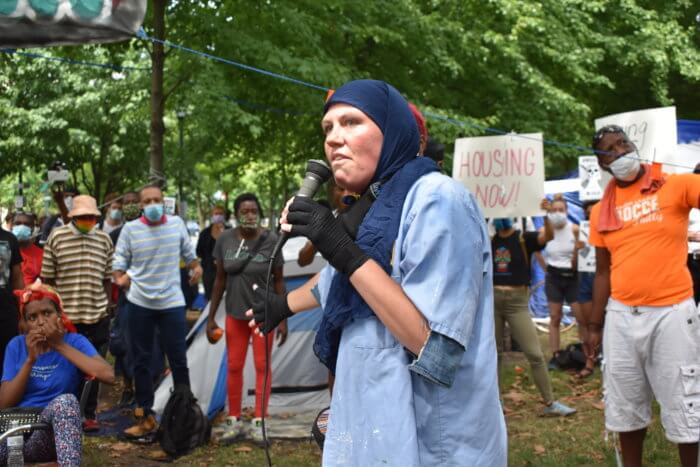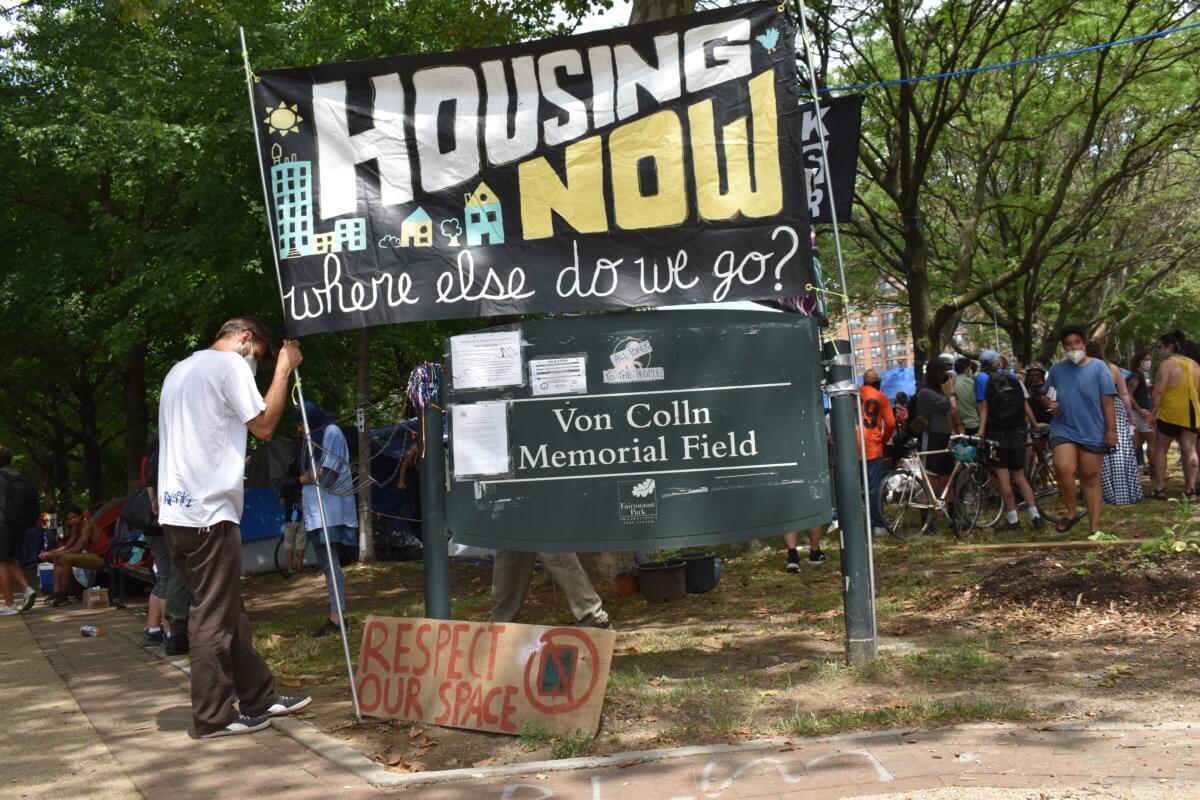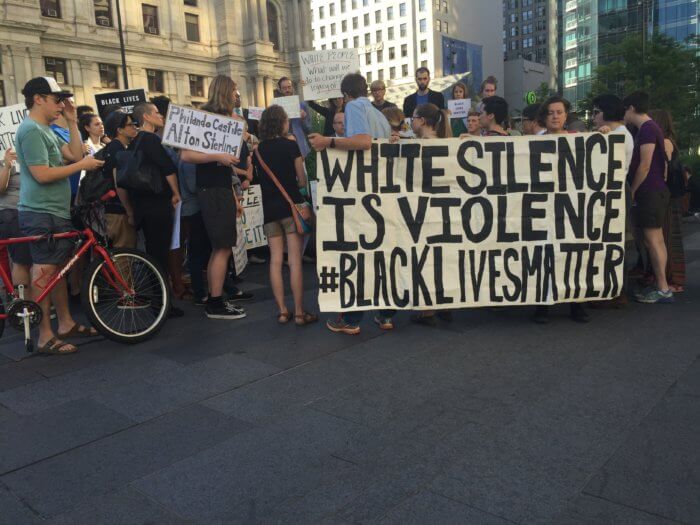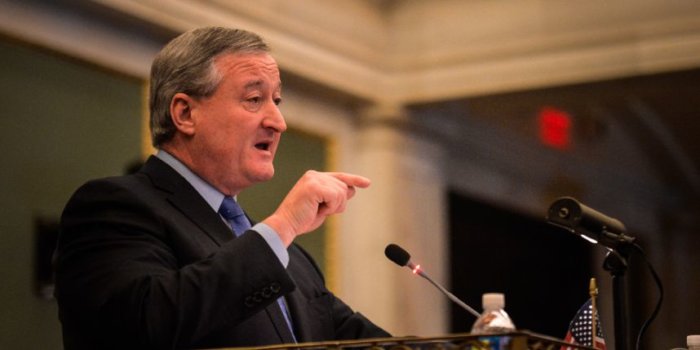Homeless people living in a large protest encampment on the Benjamin Franklin Parkway have been notified by the city that they have until Tuesday morning to vacate, setting up a potential clash between camp residents and police.
It’s the second time the city has ordered the camp to close. A smaller encampment near the Philadelphia Housing Authority’s headquarters in North Philadelphia is also set to be cleared.
After the first notice in July, Mayor Jim Kenney postponed the decision, saying he would personally intervene in negotiations. But talks have since broken down between city leaders and camp organizers.
“After several weeks of face-to-face discussions, and after more than two months of concerted efforts by our administration, I have come to the conclusion that further negotiations would be fruitless,” Kenney said in a statement Monday morning.
“I take this step again with a heavy heart, as a last resort, and in recognition of the growing health and safety concerns at the sites,” he continued.
The camp was established in June at the ball field at 22nd Street and the Parkway in the aftermath of massive Black Lives Matter protests.
Jennifer Bennetch, one of the camp organizers, said residents were caught off-guard by the announcement, and that most are planning to stay.
Many of them have been evicted from other camps over the past year and want to stand up for themselves, she said.
“It’s really disturbing that the city would expect people that don’t have a place to go to disappear within less than 24 hours,” Bennetch told Metro. “Most of the residents of the encampment don’t plan on leaving without a fight. We’ve talked about everything that could happen.”

The city has told residents to be out by 9 a.m., though it’s unclear if and how force will be used for those who do not comply.
“We strongly believe that those in the camp will voluntarily decamp, and avail themselves of the services being offered,” a city spokesperson said in an email. “We are hopeful that no one on site will refuse to leave.”
Organizers urged supporters to show up Monday night and early Tuesday morning to defend both camps.
Kenney’s administration said discussions between the sides stalled because of the “shifting demands” of camp leaders and requests that were not possible or outside of the city’s control.
Organizers have maintained that they want permanent housing for all who are living in the encampments. Officials said it would be unfair to allow them to jump a waitlist of thousands of families looking for low-income housing.
The city and housing authority “would not offer an alternative, immediate solution for the residents in the encampment, so there was no option,” Bennetch said.
At the Parkway camp, homeless services employees were able to get 80 people, including several couples, into temporary housing and COVID-19 quarantine spaces, officials said.
“However, outreach workers faced continued difficulties in being allowed to connect with residents of the camp, and the city now concludes that further outreach at the site is no longer productive,” Kenney’s administration said.
City negotiators offered to work with organizers to set up a sanctioned encampment at another site, if approved by nearby residents and the area’s representative on City Council.
That might have been a tough sell anyway. People living near the Parkway encampment have complained of human feces, needles, crime and other issues.
In addition, the city offered to establish a “tiny house village” and dedicate more than $7 million in federal grant money for new low-income units to house as many as 1,500 people. The mayor’s office also said it would work with the group behind the camps, Philadelphia Housing Action, to set up a land trust.
PHA, which had also been targeted by organizers, offered to put a moratorium on new land sales for most of its properties, implement additional oversight and incorporate police reform efforts for its housing officers.
Bennetch, who has led the Occupy PHA, an organization advocating for reforms at the authority, said the commitments were welcome but would do little for the immediate needs of those in the camps.
“The people here, they don’t have anywhere else to go,” she said.
Officials said they have made shelter and other emergency housing options available.
































